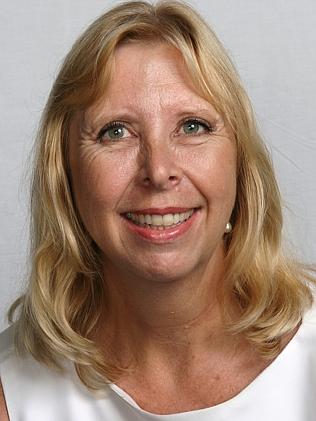Speech from Hansard (Queensland), 3 June 2014
Breast Cancer - Mrs Freya Ostapovich (Stretton - LNP) (11.45 am)
I rise to speak
on breast cancer risks and prevention. My mother has developed
breast cancer and, due to a heart condition, is unable to have a
mastectomy at this time. I have been attempting to educate myself
more on why breast cancer develops. What I have found is alarming,
not just because of the surprising contributing factors but because
many of the risks that increase breast cancer are not public
knowledge. That I find inexcusable. I wish to say to those who
hide the findings to not treat women with such disrespect as to
decide for us what we should know and what we should not.  I
want to quote from a publication available online from the Breast
Cancer Prevention Institute, quoting research by Dr Angela
Lanfranchi and Dr Joel Brind. It states - Despite the widely held
belief that it is unknown what causes breast cancer, the fact is
most breast cancer risks are dependent upon lifetime exposure to
oestrogen and the age at which a woman matures her breast tissue
through pregnancy. Research has shown us all about the biology
of the breast and how modern lifestyle choices have made breasts
susceptible to cancer.
I
want to quote from a publication available online from the Breast
Cancer Prevention Institute, quoting research by Dr Angela
Lanfranchi and Dr Joel Brind. It states - Despite the widely held
belief that it is unknown what causes breast cancer, the fact is
most breast cancer risks are dependent upon lifetime exposure to
oestrogen and the age at which a woman matures her breast tissue
through pregnancy. Research has shown us all about the biology
of the breast and how modern lifestyle choices have made breasts
susceptible to cancer.
This is evident by the fact that, while most cancers have started to decline, breast cancer has increased by an alarming 40 per cent in the US. It is in the public's interest to understand that it is not just bad genes or family history that causes a woman to be at risk. Only five per cent to 10 per cent of all breast cancer is felt to be truly genetic and caused by a cancer gene. We all know that research has shown links to the pill and HRT, and doctors monitor their patients very closely these days and warn about not staying on them for too long. Put very simply, the research shows exposure to increased oestrogen is the main culprit in developing breast cancer. Therefore, it has been found that, in addition to genetic predisposition, the pill, HRT and obesity, the more children you have the less risk there is; the younger a woman has children the less risk; the longer a woman breastfeeds the less risk; not being exposed to benzopyrene in cigarette smoke reduces the risk; having children reduces risk; carrying a baby to full term reduces risk; not drinking alcohol decreases risk, as alcohol increases oestrogen by impairing liver function; and exercise can reduce risk by 30 per cent. The medical and scientific community also agree that the more full-term pregnancies a woman has the lower her risk of breast cancer and the longer the duration of breastfeeding the lower the risk of breast cancer because breastfeeding matures breast cells into the stable type 4 cells and also postpones the return of menstrual cycles with the exposure to oestrogen. All of these protective factors are mitigated against by induced abortion and women are not being informed of these basic facts. A recent study by Chinese researchers Huang et al even showed that a dose effect, that is, the more induced abortions a woman had, the greater her risk of breast cancer. Another six studies have emerged from India and Bangladesh, confirming that induced abortion increases breast cancer risk.
Why are women not informed of these basic facts so that they can avoid induced abortions and thus lower their risk of breast cancer, the major cause of death other than road accidents for premenopausal women, and the third major cause of death for postmenopausal women? I know that some of these choices will be unpopular or inconvenient, but women have a right to know. A woman has no choice at all if she does not know the choices in the first place. Let women decide if they want to make lifestyle choices that decrease or increase the risk of contracting cancer. I hope this speech will raise awareness and get the conversation started about some real ways a woman can prevent contracting breast cancer.
